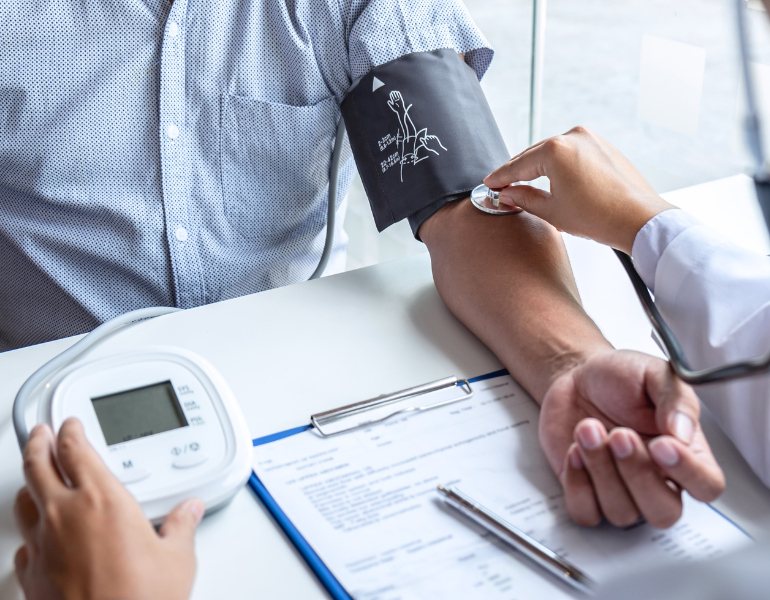
we at Reform have revolutionized the traditional health checks from a simple data-gathering checklist into a fully integrated, comprehensive 360° evaluation that includes physical, mental, and lifestyle assessments conducted by some of the top medical experts. Our health evaluation considers all factors holistically, including genetics, lifestyle, nutrition, posture, stress, and mental and social well-being. The highly skilled staff assists you in comprehending medical records, outlining the underlying dangers, and collaborating with you to create a health plan that takes into account your gender, age, lifestyle, past medical history, and the findings of your most recent health examination.
Health checkups are an essential component of preventive healthcare, and many hospitals are reforming their approach to provide more comprehensive, personalized, and accessible services. Modern hospitals are integrating advanced diagnostic technologies, offering tailored health packages based on age, gender, lifestyle, and medical history. These checkups now include a range of services, from routine blood tests and imaging to more specialized screenings like genetic testing and advanced cardiovascular assessments. The emphasis has shifted from reactive care to proactive prevention, with hospitals focusing on early detection of diseases such as cancer, diabetes, and heart conditions.

We offer tailored health checkup packages designed to meet your individual needs, based on age, lifestyle, and medical history. From basic screenings to advanced tests, we provide a holistic assessment of your health.
Our team of highly skilled doctors, specialists, and medical professionals ensures that every checkup is thorough and precise. We emphasize early detection, enabling proactive treatment and healthier outcomes.
With the latest diagnostic tools and technologies, we provide accurate, reliable, and fast results, minimizing wait times and ensuring peace of mind.
Our patient-first approach means we take the time to explain your results and offer personalized health advice, empowering you to make informed decisions about your health.
Reforming health checkup services in hospitals is crucial to enhancing the overall efficiency, accessibility, and quality of healthcare. As preventive care gains prominence in modern medicine, hospitals must adapt to better serve the needs of patients seeking routine health evaluations. A comprehensive health checkup reform can focus on several key areas: technology integration, patient experience, cost efficiency, and accessibility.
Technology Integration: One of the most significant steps in reforming health checkups is incorporating cutting-edge technology. Artificial intelligence (AI), machine learning, and telemedicine can optimize diagnostic procedures, making them faster and more accurate. AI can analyze patient data to predict potential health risks, while telemedicine can provide consultations for patients in remote areas, making checkups more accessible. Electronic health records (EHRs) can ensure seamless coordination between departments, reducing redundancies and improving patient care.
Comprehensive Health Checkup Packages: Hospitals should offer tailored, all-inclusive health checkup packages that cover a wide range of screenings, including blood tests, imaging, cancer screenings, and cardiovascular checks. These packages should be customizable based on age, gender, and existing health conditions, allowing for a personalized approach to healthcare. Additionally, including mental health evaluations as part of routine checkups would address the growing concern of mental wellness and help reduce the stigma surrounding mental health issues.
Improved Patient Experience: A major component of reform is enhancing the overall patient experience. This can be achieved through streamlined processes, reducing waiting times, and offering comfortable, easily navigable hospital environments. Implementing a one-stop service where patients can undergo various tests and consultations in a single visit would improve efficiency and convenience. Clear communication with patients regarding test results and follow-up actions is also essential for ensuring better understanding and compliance.
Cost Efficiency and Accessibility: To make health checkups more accessible, hospitals should focus on offering affordable packages, particularly for low-income individuals. Collaborating with insurance companies and government programs to cover preventive health checkups can make these services more financially viable. Public-private partnerships and subsidies for vulnerable populations can also help reduce disparities in healthcare access.